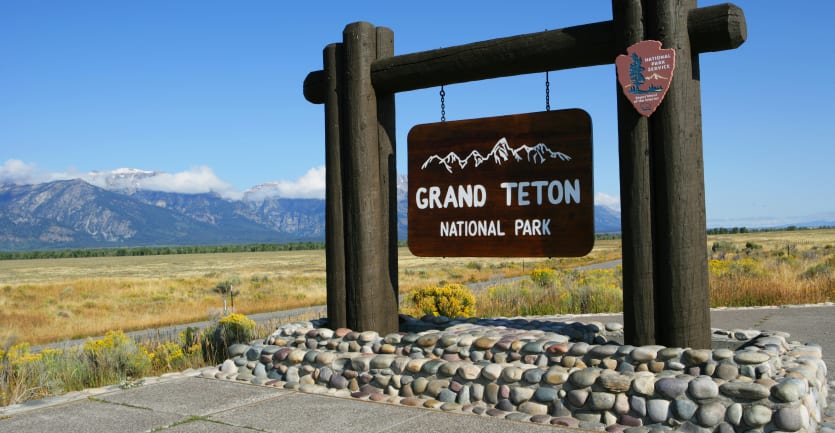How to Become a Park Ranger
- Park rangers act as stewards of public lands, educating and assisting outdoor enthusiasts.
- Interested professionals can expect stiff competition for ranger jobs in the coming years.
- Aspiring park rangers often choose majors that are transferable to other career paths.
Did you know that the U.S. contains 897 million acres of public land? A territory that size needs people to help manage it — and that’s where park rangers come in.
Although these workers are often surrounded by wilderness, most of a park ranger’s job lies in people management. Common duties include cleaning up camp-ground sanitation facilities, checking back-country permits, and giving educational presentations. Some park rangers may even be tasked with enforcing the law.
Park rangers are especially needed now: The National Park System saw a 16% rise in visitors between 2008 and 2018.
While park rangers have always played a critical role in society, their assistance is needed now more than ever. Population growth in the U.S. has contributed to increased crowding on public lands meant for activities such as recreation, logging, hunting, mining, and wildlife conservation. The National Park System saw a 16% increase in visitors between 2008 and 2018.
Life as a park ranger isn’t easy. Ensuring that everyone gets along, follows safety guidelines, and has a good time is a large undertaking. But if you like spending your days outdoors and enjoy helping people, becoming a park ranger can be a highly rewarding career.

Park Ranger Job Demand and Salary
According to the Bureau of Labor Statistics (BLS), the 2019 median annual salary for forest and conservation workers — which includes park rangers, science technicians, and other outdoor workers — was $31,770.
Though the number of park visitors has increased, park ranger positions are projected to fall 3% between 2018 and 2028.
Working as stewards of public lands, park rangers are employed by tribal, local, and state governments, as well as the federal government. Unfortunately, as these governments’ budget constraints tighten, environmental workers such as park rangers often become the first workers on the chopping block.
A recent report revealed that the number of park rangers hired by the National Park Service — one of the largest employers of rangers — has steadily decreased over the years, even though park visitor numbers have increased. In 2018, there were about 14,000 forest and conservation jobs in the U.S., but the BLS projects that this number will decline 3% between 2018 and 2028.
Nevertheless, recent calls by politicians to reinvest in the National Park Service as part of Green New Deal legislation suggest these projections could change. If ideas like the Green New Deal gain momentum, park rangers could see a rise in employment opportunities in the near future.
How to Become a Park Ranger
It can be difficult to work as a park ranger because there are so many applicants for so few jobs.
You can check USAJobs to find listings and requirements for open federal park ranger positions. Your state parks department and local/tribal parks department are also good resources for job hunting.
Below, we cover all the main park ranger requirements you’ll need to pursue this exciting career.
Earn a Degree in a Relevant Major
Instead of going over the various park ranger job requirements for the different state, tribal, and local parks departments, we’ll look at what’s required to get a job as a park ranger with the National Park Service, one of the biggest employers of park rangers in the U.S.
National Park Service rangers are assigned grades, known as GS levels, from 1-11 (or higher). In general, the higher your grade, the more money you’ll make — though you’ll need more experience or education to be able to advance.
The minimum educational requirements for each of these grades are as follows:
GS-1 to GS-4: High school diploma
GS-5 to GS-7: Bachelor’s degree, or at least one year working as a GS-4
GS-9 to GS-11: Master’s degree, or at least one year working as a GS-7
GS-11 or higher: Doctoral degree, or at least one year working as a GS-9
Looking at these park ranger requirements, you can see how someone might be able to work their way up to a GS-11 position or higher with nothing but a high school diploma; however, many people entering the service possess at least a bachelor’s degree because it fast-tracks them to higher-paying positions.
Common College Majors for Park Rangers
- Anthropology
- Archaeology
- Biology or wildlife biology
- Earth science
- Environmental studies
- History
- Law enforcement
- Natural resources management
- Natural science
- Parks and outdoor recreation
Work as a Seasonal Park Ranger or Volunteer
Many park rangers start out by working paid or volunteer seasonal positions before gaining enough experience for permanent jobs. As competition grows for park ranger positions, these experiences are increasingly important.
Aspiring park rangers can boost their odds of securing a full-time job by volunteering with their local parks department.
You may also be able to boost your odds of success by volunteering with a local parks department. Many parks departments offload some of the work that was previously performed by paid park rangers onto volunteers to save money due to budget cuts.
Though this practice is unfair to those without the means to volunteer, it does create opportunities for you to get hands-on experience before you apply for a park ranger job. Even more importantly, you can get to know your potential future coworkers and bosses. With fierce competition for positions, you could benefit from personally knowing the hiring officials.
It’s common for aspiring park rangers to fit seasonal positions into their college schedules. For example, you could attend school in the fall and spring terms, and then work a ranger job over the summer.
Ideally, this seasonal work will prepare you to shift straight into a permanent, full-time position when you graduate; however, nothing is guaranteed, so be sure to keep your options open.
Gain Law Enforcement Training Experience
Due to the remote nature of many parks, which often lie far away from established cities and towns, some park rangers may be required to enforce the law as well. In order to work in law enforcement for the National Park Service, you’ll need a law enforcement commission.
Those who have worked as a law enforcement officer likely already have this credential. If you don’t have this — and most people don’t — you’ll need to attend a Seasonal Law Enforcement Training Program. There are seven of these schools across the country, and training lasts for 17 weeks.
Once you finish the program, you’ll be eligible to apply for law enforcement positions. Professionals with law enforcement experience are typically given preference for park ranger positions.
Veteran’s Preference
If you’ve served in the military, your chances of landing a job as a park ranger with the federal government increase dramatically. Veterans receive preference for many national positions. If two candidates are equally qualified for a job but one of them is a veteran, the hiring official is required by law to hire the veteran.
This can be an especially great career opportunity for former military police officers, as you’ll have both the veteran’s hiring preference and the necessary training to qualify for park ranger jobs with a law enforcement component.

The Value of a Career as a Park Ranger
Many people hold romantic images in their minds of a lone park ranger riding off into the sunset on the back of a horse. While this might be true in some cases, for most park rangers, the job involves heavy interaction with the public.
Park rangers must be outgoing, friendly, and capable of handling all kinds of situations, such as clearing downed trees from roadways, aiding in search and rescue operations, and giving presentations to tourists from around the world. Most park rangers welcome these daily challenges and enjoy working in a dynamic atmosphere.
If you’re interested in pursuing a career that features environmental stewardship and regular interaction with people, you’ll likely thrive as a park ranger.